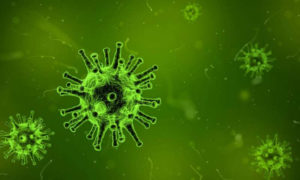Low-Fat Ice Cream Uses Cloned Fish Blood Proteins
Appetizing news from the N Times: "New industrial processes, including one that involves a protein cloned from the blood of an Arctic Ocean fish, have allowed manufacturers to produce very creamy, dense, reduced-fat ice creams with fewer additives" Yum.Appetizing news from the N.Y. Times: “New industrial processes, including one that involves a protein cloned from the blood of an Arctic Ocean fish, have allowed manufacturers to produce very creamy, dense, reduced-fat ice creams with fewer additives.” Yum.
Your support matters…N.Y. Times:
In its quest to create ice cream as voluptuous as butter and as virtuous as broccoli, the ice cream industry has probed the depths of the Arctic Ocean, studied the intimate structures of algae and foisted numerous failures on the American public.
?I have tried them all as they came down the pike: dairy-free, fat-free, sugar-free; with tofu, yogurt, rice, whatever,? said Linda Calhoun, a teacher who lives near Flagstaff, Ariz., cataloguing the disappointments she has tasted over the years. ?They always make me sad.?
For Americans who spend each summer wrestling with temptation, there is fresh hope in the freezer case. New industrial processes, including one that involves a protein cloned from the blood of an Arctic Ocean fish, have allowed manufacturers to produce very creamy, dense, reduced-fat ice creams with fewer additives. The new products appeal to those who have acquired a taste for superpremium high-fat ice cream but cannot stomach its fat content.
Independent journalism is under threat and overshadowed by heavily funded mainstream media.
You can help level the playing field. Become a member.
Your tax-deductible contribution keeps us digging beneath the headlines to give you thought-provoking, investigative reporting and analysis that unearths what's really happening- without compromise.
Give today to support our courageous, independent journalists.









You need to be a supporter to comment.
There are currently no responses to this article.
Be the first to respond.